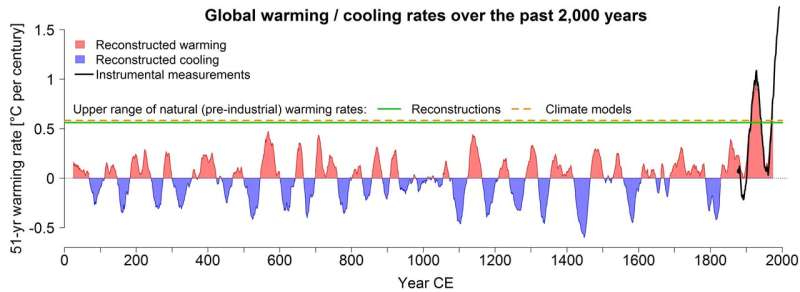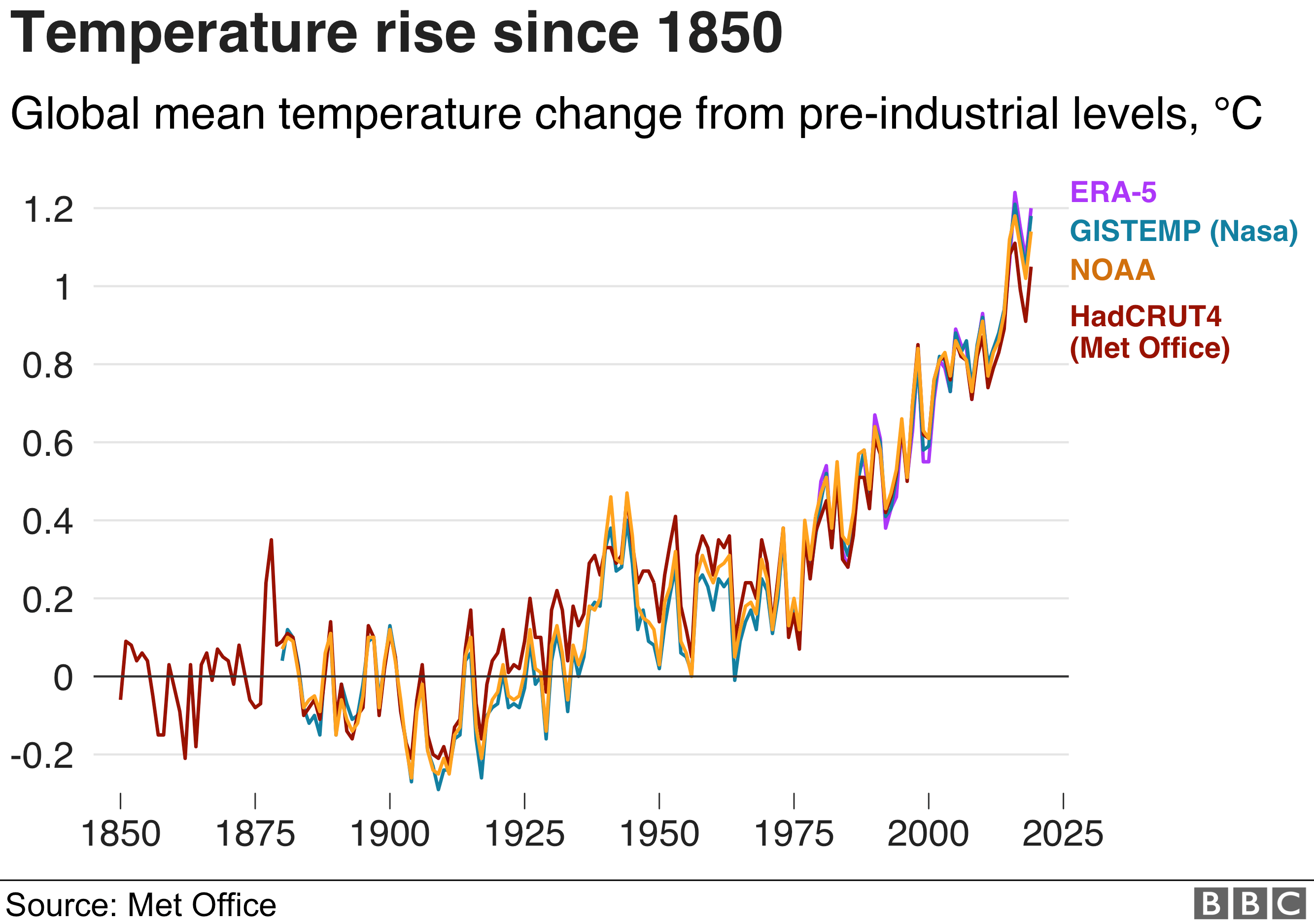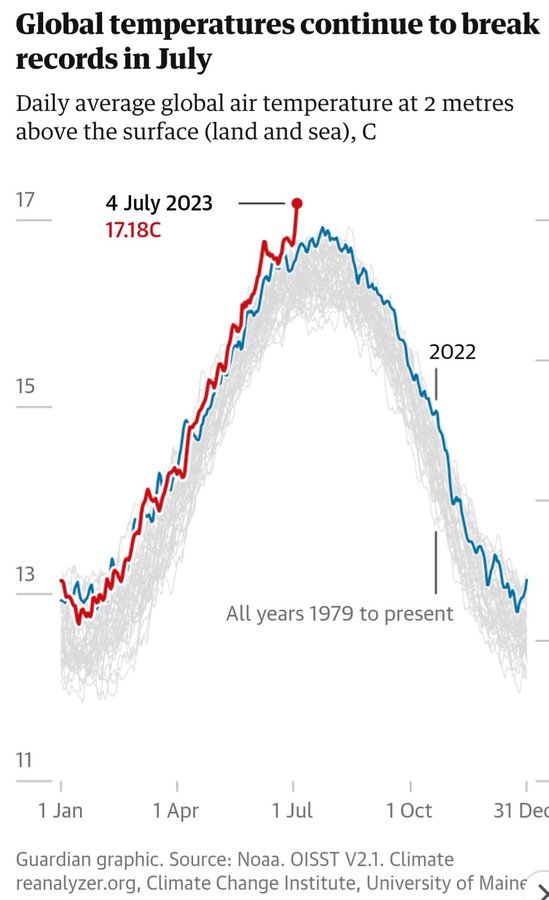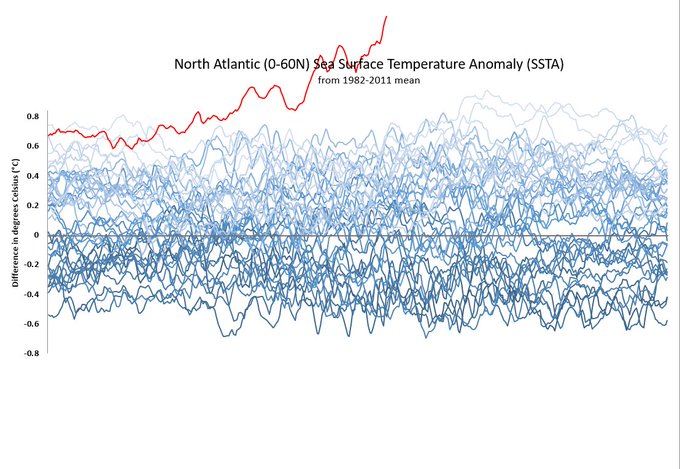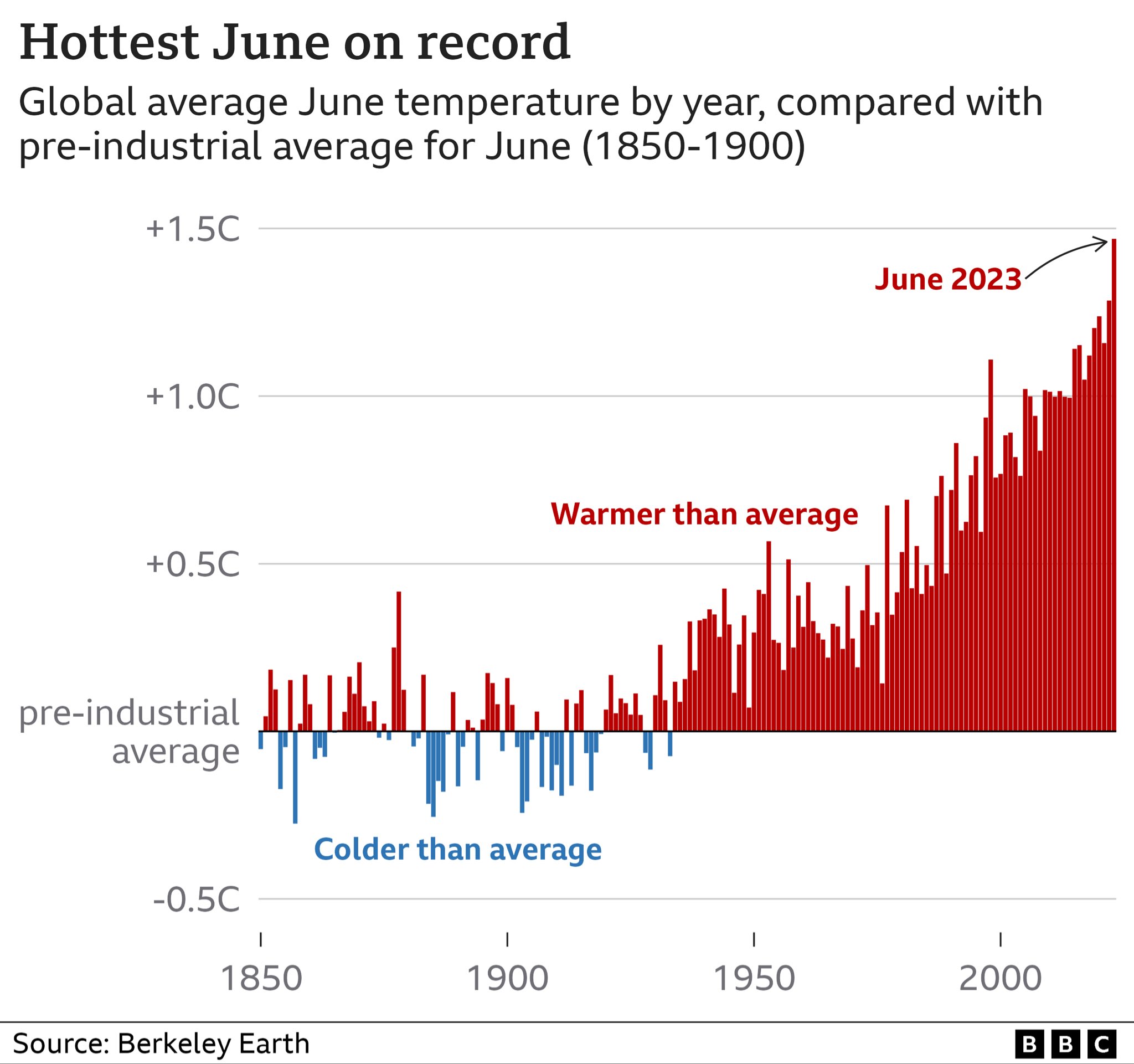Here is a graph of the average temperature on Earth in the last 400,000 years (source
World Economic Forum: How to mine climate data).
The really safe data comes primarily from post-1850 and here lies a fundamental problem, because in 1850 we were still in the "Little Ice Age":
The
NASA Earth Observatory notes three particularly cold intervals. One began about 1650, another about 1770, and the last in 1850, all of which were separated by intervals of slight warming.
https://en.wikipedia.org/wiki/Little_Ice_Age
That was a very bad time, climatically, for Europe. In a way, a lot of the warming since then could be seen as a normalising trend, because again, the 19th century was still in a cold phase. That's something constantly ignored in the recent "climate debates", which makes the whole process absurd.
Also, the very idea that the European or world climate would be "stable" without human intervention is a naive expectation. There are a lot of factors influencing and changing the climate (like vulcanic eruptions, sun activity, changes of the earth axis, even sea currents etc.) which can all drastically alter the climate on the short, but also the longer term, and which humans can't influence and being simply subjected to, like all other lifeforms on this planet.
The greatest threat to mankind is not global warming, but would be another Ice Age, which, by the way, was the primary fear of the general public and many scientists before the "Club of Rome":
Global cooling was a
conjecture, especially during the 1970s, of imminent cooling of the
Earth culminating in a period of extensive
glaciation, due to the cooling effects of
aerosols or
orbital forcing. Some
press reports in the 1970s speculated about continued cooling; these did not accurately reflect the scientific literature of the time, which was generally more concerned with warming from an enhanced
greenhouse effect.
[1]
In the mid 1970s, the limited temperature series available suggested that the temperature had decreased for several decades up to then. As longer time series of higher quality became available, it became clear that global temperature showed significant increases overall.
https://en.wikipedia.org/wiki/Global_cooling
The quality of the reconstructed climate is not the same globally, and for Europe, we can definitely say that we had warmer periods before and these were usually defined as a "climatic optimum" period, because it improved the living conditions in the temperate climate zone. The longest and most important warmer phase being the Holocen climatic optimum:
https://en.wikipedia.org/wiki/Holocene_climatic_optimum
Because of all that, the current warming is a pretty relative matter, even if its real and changes our lives. Also the human made factor for the climatic change is not as clear as some state it to be. What I don't doubt is that the human activities are a major factor, but how big exactly and how to calculate the future climate in detail is a complicated matter, which some people claim to be exactly this or that, yet they are unable to conclusively prove it.
All of that doesn't mean that I'm not concerned and I actually did care about climate change and the human factor long before many others did (or were born), but the fundamental problem is twofold:
- the absolute, even totalitarian character with which some theories being presented as fixed facts and no critical public or scientific debate being allowed any longer, if its about a more fundamental criticism of some "political thruths".
- the concrete policies and political abuse of climate change and theories. Because even if some assumptions are correct and we want to fight e.g. CO2, Methan and other emissions to reduce the human factor in the current climate change, its no god given truth how we should do it and at what social, economic and political costs. Like giving up freedoms and choices, wealth and independence, for getting a very small effects in return and some actors just profiting with massive gains in wealth, control and power over the majority of people and the globe as a whole.
Take a concrete example: The CO2 emissions trading, which just created yet another perverted speculative bubble and financial enterprise, while its effect on emissions and "the climate" is highly questionable. Or the radical policy and campaigns against animal products and the push for veganism, which has a very sinister turn in taking away people's choices and giving even more of the agricultural sector to big corporations and ruining small farmers and local, independent food production. We will get highly processed crap to eat and the corporations will take away our local products and food safety, that will be the main effect.
Or the trend to force people living in big appartment blocks, instead of detached houses, with electronic devices for heating and again a lower self-sufficiency and higher dependency.
Of course, in Germany the situation is particularly dire, since the current government wanted to get rid of Russian gas (for which it has to pay anyway, because of the agreements it made before, which makes it even more absurd) and shut down the atomic energy production
at the same time. This irresponsible decision will plunge Germany and all of Europe in an even greater recession than the COVID-pandemic and associated policies (another great achievement of the current establishment), the war in and payments for Ukraine, together with the sanctions against Russia and the following energy crisis would have created anyway - not even mentioning the current money and fiscal policies worldwide, the rampant inflation which started before all of that.
Anyway, we have the facts and we have the pollitical decisions how to deal with those. The facts are not as clear as some tell us and what's the most reasonable, best policy for the people to deal with the climate change and emission problem is also a different matter than just stating the facts. Its a political decision which should account for all aspects and consequences.
Again, I see the climate change, I see the problem, I see the human made contribution, the human factor and emission problem. How we deal with that, to really improve the emissions without ruining the middle class, choice and freedom, without just helping certain elements of the establishment to gain even more of everything (wealth, control, power) is another matter.
The shipping traffic and fat oil debate is a real classic on that matter, because it would have had a huge effect, and potentially a minimal impact on the average people and their lifes. Yet it was a largely ignored problem, because it wasn't as easy to abuse and the big shipping companies and big money had no real interest in changing anything about it. When politicians, big business and old & new influencers meet to talk about the climate, a good start would be if they would restrain themselves and instead of landing with their private jet or yacht, use a more modest and climate friendly mean of transportation. But that's beyond the mindset of this privileged class, which rather wants to "educate" and constrain the general public instead of changing their own behaviour. Even funnier if they live a high emission life in all respects, with 10 houses, 5 cars, a private jet and big yacht, but became "vegan role models for the climate" or tell average people how they have to restrain themselves, that's just disgusting.




